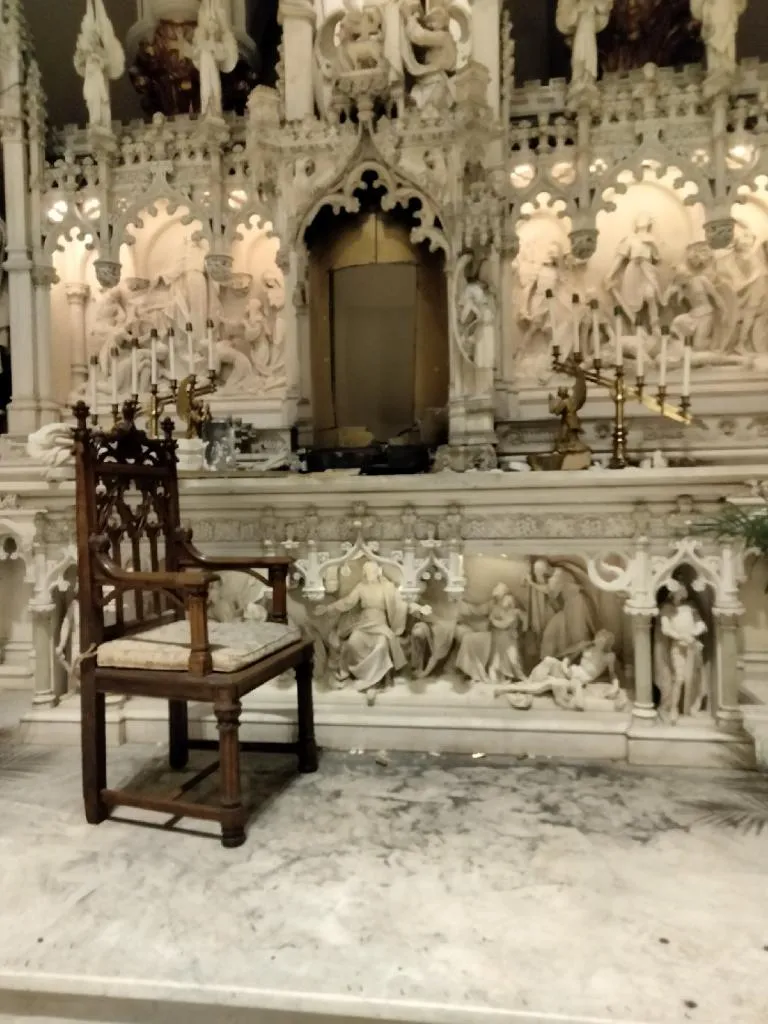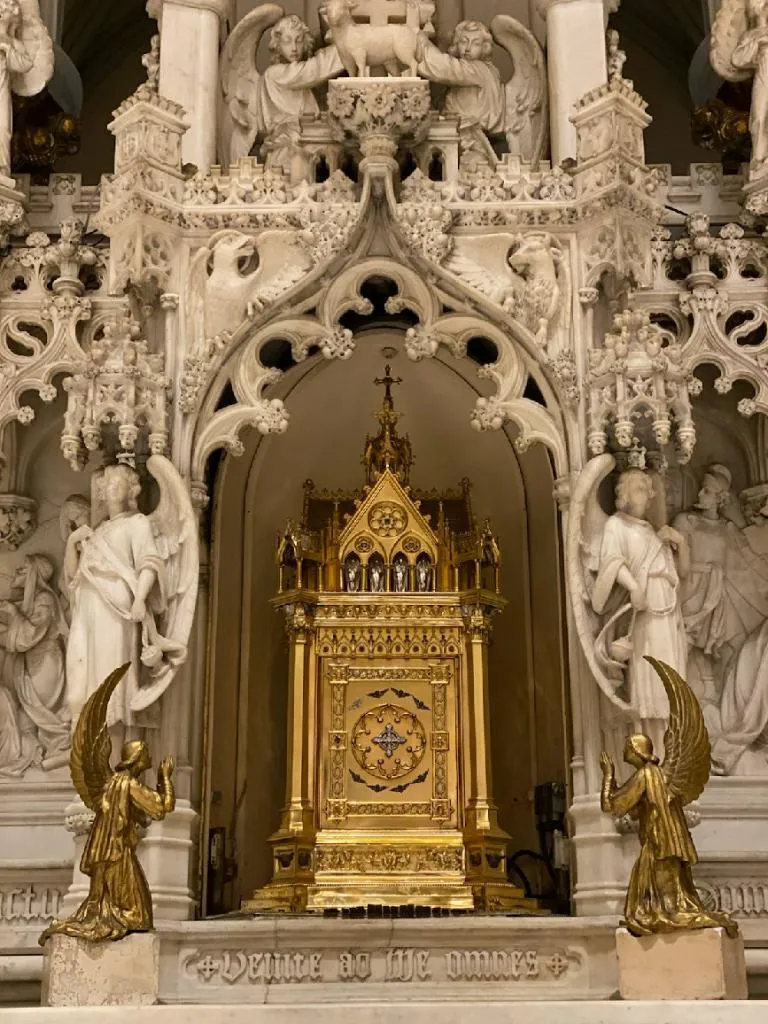
Denver Newsroom, May 29, 2022 / 16:33 pm (CNA).
A tabernacle has been stolen from St. Augustine Catholic Church in the Park Slope neighborhood of New York City’s Brooklyn borough.
The Diocese of Brooklyn said May 29 that “the Holy Eucharist housed inside the Tabernacle was thrown all over the altar.”
The burglary was discovered by Father Frank Tumino, pastor of St. Augustine parish, on the afternoon of May 28; it is suspected to have taken place the previous day.
“This is devastating, as the Tabernacle is the central focus of our church outside of worship, holding the Body of Christ, the Eucharist, which is delivered to the sick and homebound,” Fr. Tumino said. “To know that a burglar entered the most sacred space of our beautiful Church and took great pains to cut into a security system is a heinous act of disrespect.”

The diocese said that the burglar “cut through a metal protective casing” to take the late 19th century tabernacle, which “is irreplaceable due to its historical and artistic value.”
Police have estimated the tabernacle’s value at $2 million.
The angels on either side of the tabernacle “were decapitated and destroyed.”
A safe in the sacristy was cut open, the diocese added, but it was empty.
The Tablet, the Brooklyn diocese’s publication, reported that while St. Augustine’s has security cameras, “the burglars apparently made off with some components of the video recording system.”
If you value the news and views Catholic World Report provides, please consider donating to support our efforts. Your contribution will help us continue to make CWR available to all readers worldwide for free, without a subscription. Thank you for your generosity!
Click here for more information on donating to CWR. Click here to sign up for our newsletter.




No offense, but who installed this “security system” for this church? The three stooges? These people had time to do NOISY wreckage in both the church and the Sacristy, cutting through metal to get the tabernacle, decapitating statues in the church, somehow opening a safe in the sacristy, yet NOBODY heard them? How, in fact, did they manage to even enter the church?? How is the security system monitored and WHERE was it located such that the thieves were able to make off with vital components which could have been used to identify them? . The monitor and its films should have been elsewhere in the church facility, in the rectory or church offices separate from the church itself. There should have been an electric eye in front of the tabernacle and possibly at all entrances of the church so that an AUTOMATIC alarm would be sent to a central monitoring station allowing police to be summoned immediately. Even my modest home has such a system. The tabernacle was worth $2 million but adequate protection was not deemed necessary? Not to mention the value of the tabernacle as a HOLY object to believers, which is to say it’s priceless. . I hope the tabernacle is recovered but I also hope that whoever is in charge of this parish has the smarts to get a more adept security company to do a PROPER job of protecting this church. Clergy need to wake up to the fact that life is not as it was, when even thieves had a certain element of respect. We no longer have that attitude in play and must act accordingly to protect objects of sacred value.
Absolutely right, LJ.
Our bishops, our pastors and our parishioners all need to realize that we Catholics are being persecuted.
These security measures are not rocket science. As you point out, many prudential home owners are undertaking them themselves.
Perhaps a first step might be to stop voting for candidates of the political party that is persecuting us?
Huh, Catholics? What do you say?
Don’t hold your breath waiting for the MSM to notice, much less, condemn these anti-Catholic incidents.